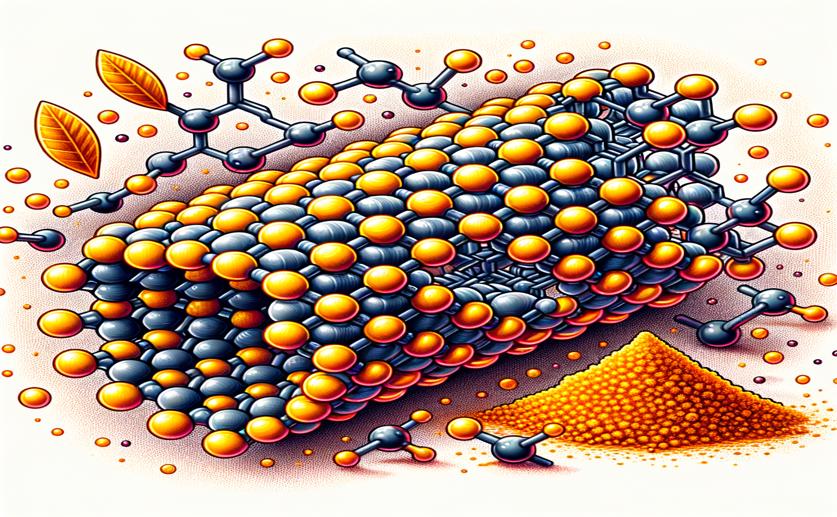
Curcumin-Coated Carbon Nanotubes: A Safer Alternative
Jim Crocker
26th March, 2024

Image Source: Natural Science News, 2024
Key Findings
- In India, curcumin-coated nanotubes reduced inflammation in cells
- The coating also decreased oxidative stress by lowering harmful molecules
- Curcumin-coated nanotubes helped maintain cell energy production and survival
References
Main Study
1) Curcumin coating: a novel solution to mitigate inherent carbon nanotube toxicity.
Published 25th March, 2024
https://doi.org/10.1007/s10856-024-06789-9
Related Studies
2) Reactive oxygen species production, genotoxicity and telomere length in FE1-Muta™Mouse lung epithelial cells exposed to carbon nanotubes.
3) Experimental and clinical reports on anti-inflammatory, antioxidant, and immunomodulatory effects of Curcuma longa and curcumin, an updated and comprehensive review.
4) An effective nano drug delivery and combination therapy for the treatment of Tuberculosis.
5) Advances in Drug Delivery Nanosystems Using Graphene-Based Materials and Carbon Nanotubes.



 15th January, 2024 | Greg Howard
15th January, 2024 | Greg Howard